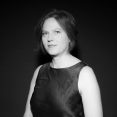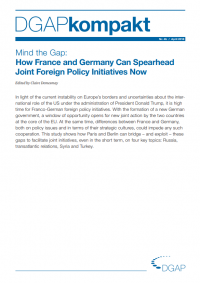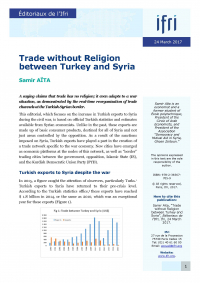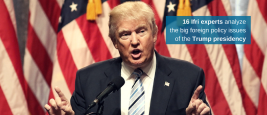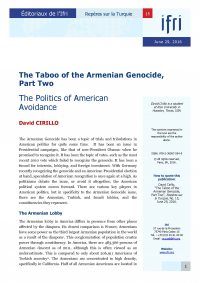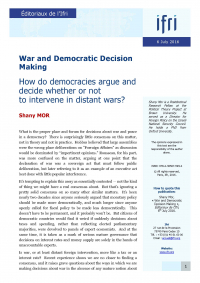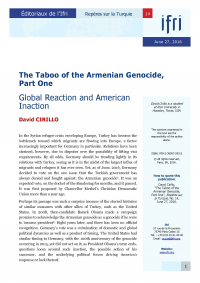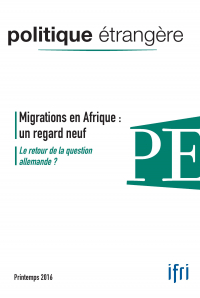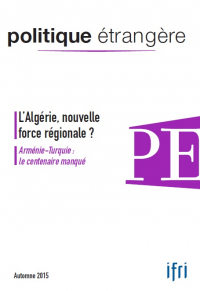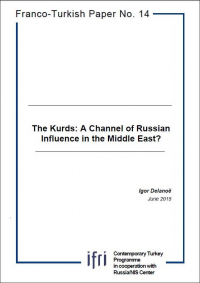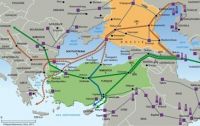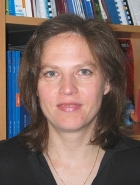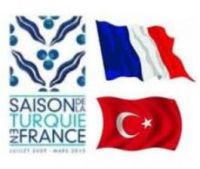In light of the current instability on Europe’s borders and uncertainties about the international role of the US under the administration of President Donald Trump, it is high time for Franco-German foreign policy initiatives. With the formation of a new German government, a window of...

Türkiye
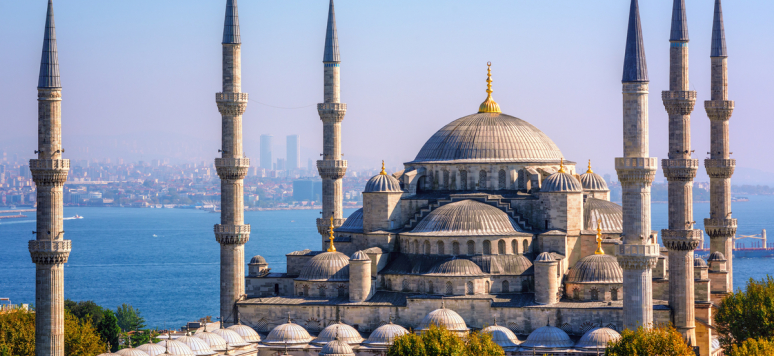
Türkiye today evolves very fast, due to the joint influence of external factors and internal dynamics that are sometimes difficult to grasp.
The beginning of negotiations to adhere to the European Union allowed the Turkish government to pursue a series of political reforms in order to conform to the criteria demanded by Copenhagen. After many years of severe structural adjustment the Turkish economy benefits from outstanding growth rates that confirm its status as a promising emerging market. Turkish civil society also seems to acquire and strengthen an autonomous voice in the debates to come.
However, there are many uncertainties that are here to stay. As this process of change is still unfinished, the permanent state of political crisis comes at the expense of economic stability. Institutional models and political culture are undergoing a phase of mutations whose outcomes are difficult to predict. Experiencing a rural exodus and new forms of social mobility, the Turkish population is aware of the important consequences these profound changes have on the social contract and national consensus. On a diplomatic level, Türkiye is oscillating between the ardent European demands, exercises of power that may lead to a loss in sovereignty, and the other tempting alliances that could strengthen its status as a regional power that cannot be ignored.
Far from simplifying the Turkish mosaic, the intensification of its relations with the European Union seems to complicate it: new subject positions emerge that emphasize the need to create new tools of understanding. We must look at contemporary Turkish reality with a new eye in order to spot these new actors, factors of mobilization and lines of cleavage that weigh on Türkiye’s choices.
Senior Research Fellow, Head of Ifri’s Türkiye and...
Research Fellow, Türkiye and Middle East Program
...Associate Research Fellow, Türkiye and Middle East...
Associate Research Fellow, Türkiye and Middle East Program
...Associate Research Fellow, Sub-Saharan Africa Center and Turkey/Middle East Program
...A saying claims that trade has no religion; it even adapts to a war situation, as demonstrated by the real-time reorganisation of trade channels at the Turkish-Syrian border.
What will become of US foreign policy under Donald Trump? A selection of Ifri researchers has come together to offer their thoughts on this question. Our experts cover an array of topics through 14 contributions, ranging from the future Sino-American relations, through US engagement in the...
The Armenian Genocide has been a topic of trials and tribulations in American politics for quite some time. It has been an issue in Presidential campaigns, like that of now-President Obama: when he promised to recognize it. It has been the topic of votes, such as the most recent 2010...
What is the proper place and forum for decisions about war and peace in a democracy? There is surprisingly little consensus on this matter, not in theory and not in practice. While in Iraq, Libya and Syria, all Western actions have ended in failure, it seems necessary to analyze the place and...
In the Syrian refugee crisis enveloping Europe, Turkey has become the bottleneck toward which migrants are flowing into Europe, a factor increasingly important for Germany in particular. Relations have been strained, however, due to disputes over the possibility of lifting visa requirements.<...>
The Kurdish military’s recent history immediately brings to mind images of its mythical female fighters, and of its real victories against Daesh. But its successes have been primarily in Syria. In Iraq, the Kurdish military has been hindered by poor preparation, lack of effective weaponry, and...
At the close of World War I, denial of the Armenian genocide became a central point in Turkey’s official doctrine.
The 100th anniversary of the Armenian genocide will not mark a great historical moment in Armenian-Turkish relations.
With the Syrian crisis entering its fifth year, the changing security context in Syria and Iraq since the summer of 2014 has highlighted the increasingly important role played by the Kurds as a fighting force against Islamic State (IS). In a more general context of renewed Russian influence in...
Turkey/Arab world: what role for Turkey ?
Developing Turkish-Arab relations have certainly become a major trend in the Middle East. AKP's Turkey, who seems to come to terms with the Ottoman heritage, is imposing itself as a diplomatic, economic and cultural power in the Middle East. What role will it play in the current political...
Kurdistan within Iraq: Federalism, how far?
Manifestation sur Invitation
The Great Ambitions of the Turkish Diplomacy
An event dedicated to Ifri's corporate members
...
First French-Turkish Media Forum
As part of the "Turkey season in France (July 2009 - March 2010)", Ifri's Contemporary Turkey Program organises "French-Turkish Media Forum" in partnership with TESEV (Turkish Economic and Social Studies Foundation, Istanbul).
...
Turkey in Europe: breaking the vicious circle
La Commission Indépendante sur la Turquie effectue une tournée des capitales européennes pour présenter son deuxième rapport : "La Turquie dans l'Europe : Briser le cercle vicieux". L'Ifri accueille les auteurs pour faire le point à Paris avec la participation de : Martti Ahtisaari<...>
Turkey vis-àvis economic crisis
Seminar about the impact of the economic crisis on Turkey and about policies of AKP government, with Deniz Unal, economist at CEPII, Kadri Gursel, journalist at Milliyet, Serap Atan, TUSIAD Representative in Paris and Yves ...
Aucun résultat



